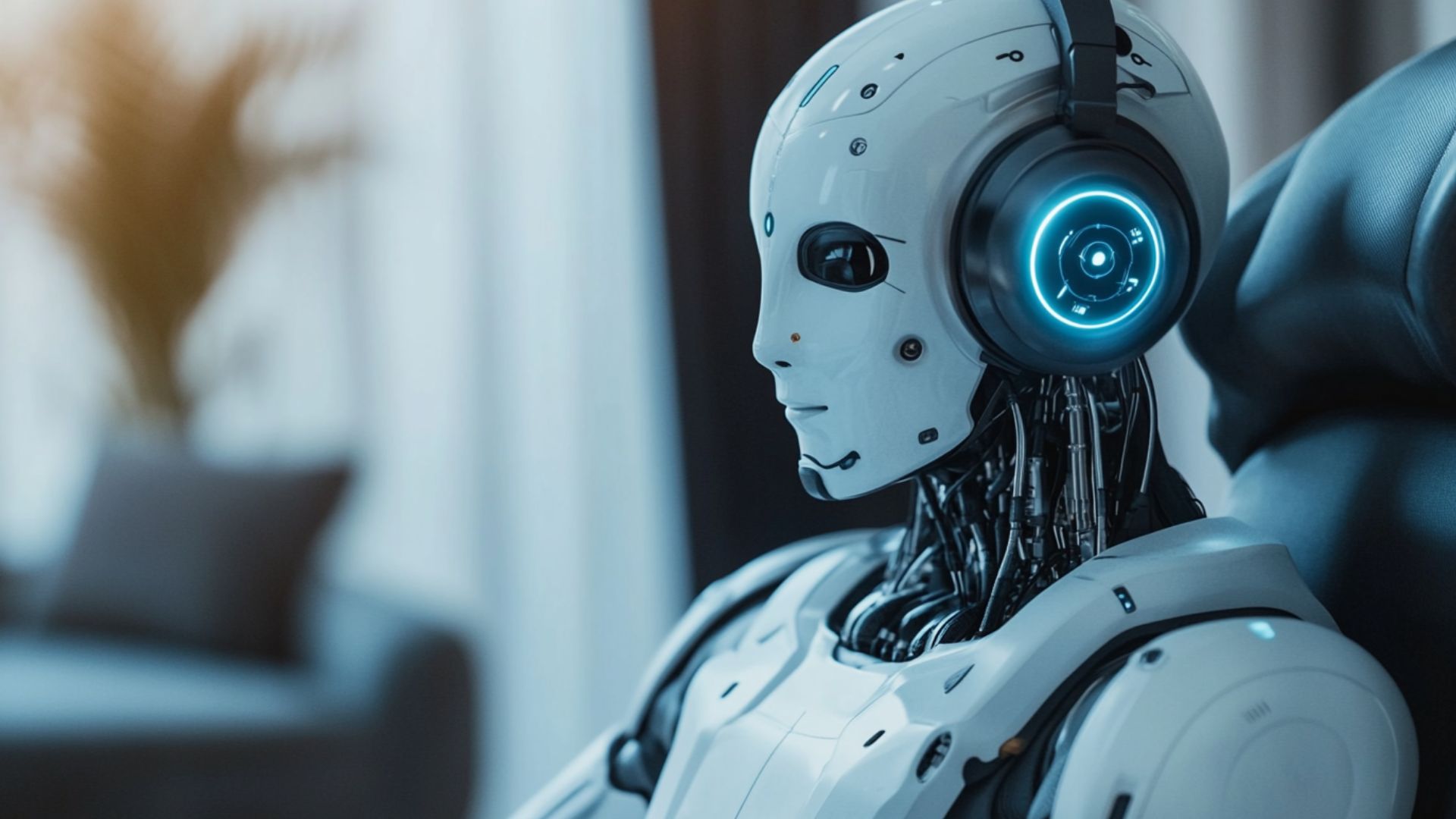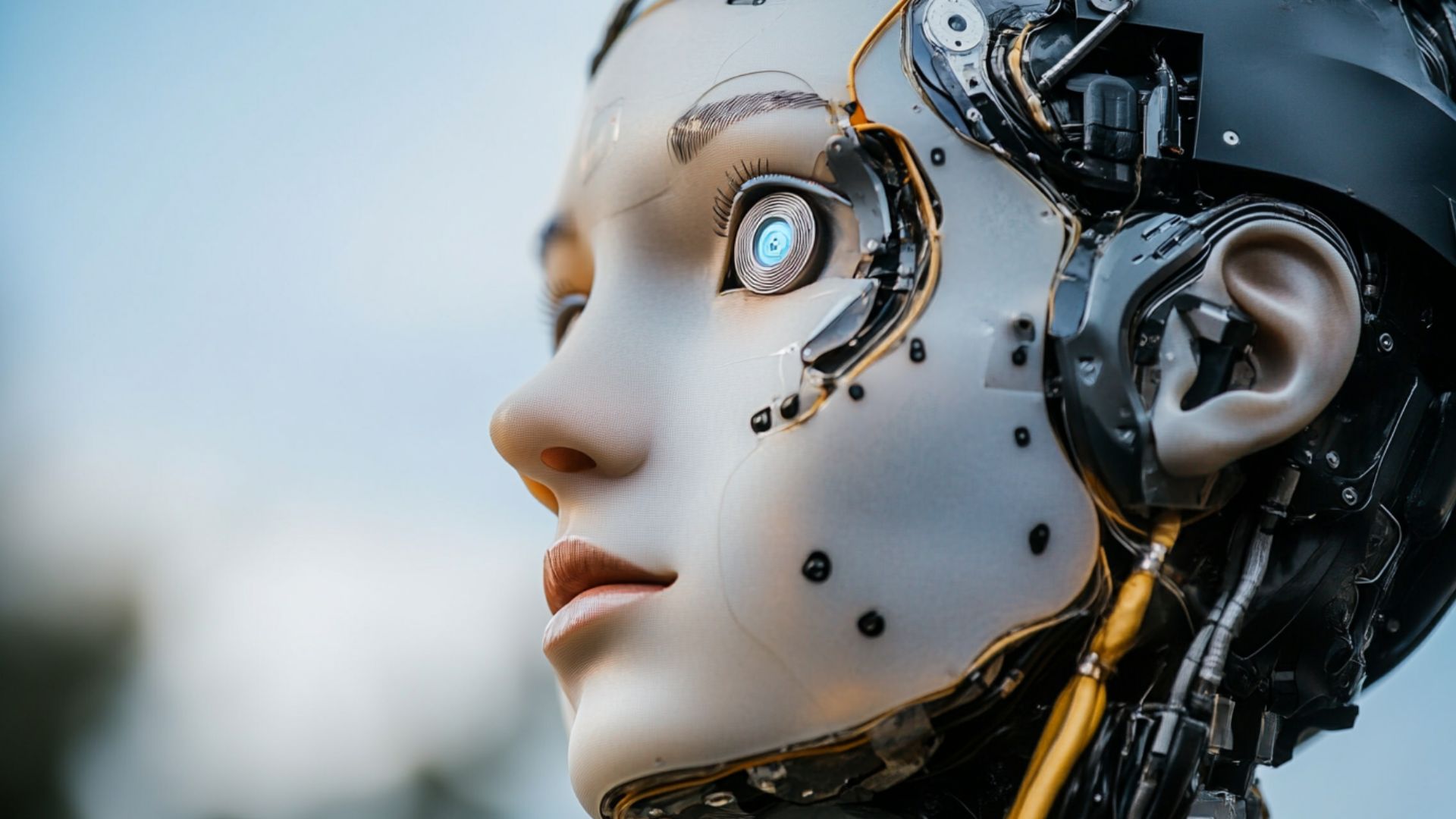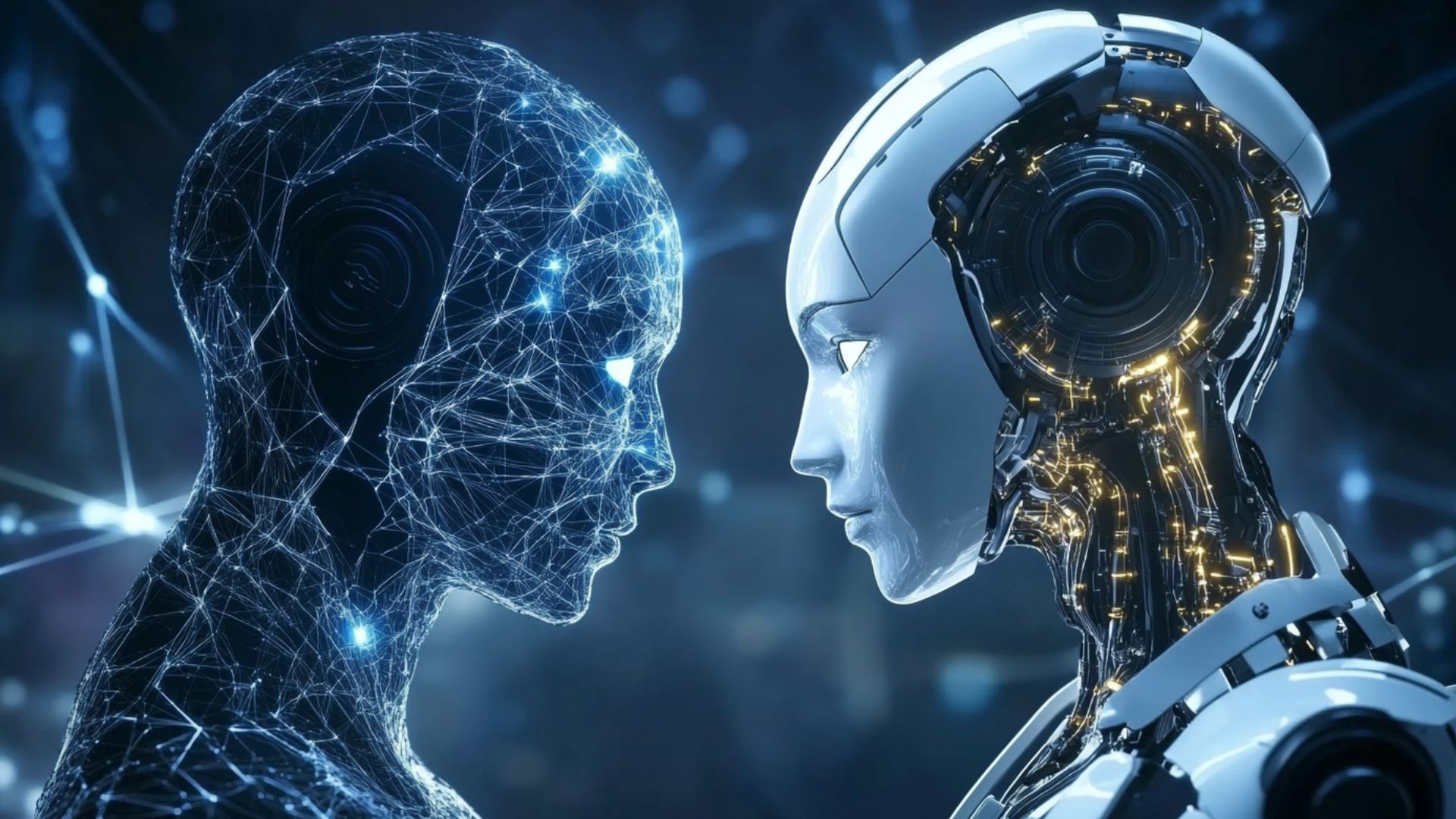The Role of Intelligent Digital Workers in Business Automation

AI assistants can become more than just a personal assistant. Today, they can take monotonous, exhausting and complex tasks off your shoulders. Want to learn more about how you can integrate intelligent business process automation? Then let's get to it. AI is now being extensively used by companies around the world. This applies from small "home-based" businesses to established medium and large brands.
Let's figure out exactly what tasks you could hand over to AI. This allows you and your employees to offload tasks immediately, freeing you to focus on growing your business. We could discuss AI development at length, but one thing is clear. This technology will be with us for a long time, because it is already changing the world. We are now standing at the origins of AI. Organizations that adapt quickly will gain the greatest advantages.
Understanding Intelligent Digital Workers
Intelligent virtual workers are software-based systems. They perform tasks like human employees. These workers combine advanced technologies to automate complex processes. Traditional automation tools follow rigid, pre-set rules. Robotic workers adapt and learn. Traditional tools handle simple and repetitive tasks. Think of them as similar to assembly line robots. Digital workers, however, tackle dynamic, decision-based work.
Their "intelligence" comes from key components. First, AI enables problem-solving and pattern recognition. Second, RPA executes routine tasks quickly. Third, NLP allows them to understand and respond to human language. Fourth, decision-making capabilities let them analyze data and choose actions. Together, these create intelligent business process automation. It is far beyond basic scripting.
Here’s how they work:
- Learning: They improve over time using machine learning.
- Adapting: They adjust to new data or changes in tasks.
- Interacting: NLP helps them communicate with humans or systems.
- Deciding: They weigh options and act without constant oversight.
These workers take on jobs that once needed human input, including customer support, data analysis, or invoice approvals. They read emails, extract info, and reply accurately. They process claims, spot errors, and flag issues. This reduces human workload and errors. Businesses scale efficiently because digital workers handle growing volumes without hiring more staff.
Intelligent process automation companies like UiPath, Automation Anywhere, and Blue Prism are leading this shift. They design these systems to integrate with existing tools, making adoption smooth. The result? Companies run faster, cheaper, and smarter. Intelligent digital workers don’t just automate. They transform operations, letting humans focus on strategy and innovation.
Core Technologies Powering Intelligent Digital Workers
Intelligent digital workers rely on advanced technologies. These tools make them smart, adaptable, and responsive. Here’s how intelligent process automation services work:
- Artificial Intelligence (AI): This technology powers decision-making. It analyzes data and mimics human reasoning. This helps digital workers solve problems fast.
- Machine Learning (ML): ML enables learning from experience. Digital workers improve over time. They spot trends and adjust to new tasks.
- Natural Language Processing (NLP): NLP lets them understand language. They read emails, chat with clients, and process text. This makes communication smooth.
- Cognitive Computing: This mimics human thought processes. It handles complex, unstructured data. Digital workers adapt to changing environments.
These technologies combine to create robust systems. AI and ML drive decisions and growth. NLP ensures precise interactions. Cognitive computing tackles ambiguity. Together, they make digital workers flexible for dynamic business needs.
Intelligent process automation companies like UiPath and Automation Anywhere build these solutions. They integrate AI, ML, and NLP into practical tools. Automation services offer tailored systems for industries like finance and healthcare. The result? Digital workers that think, learn, and respond. They transform how businesses operate.
The Benefits of Using Intelligent Digital Workers in Automation
Intelligent digital workers bring significant advantages to automation. They boost efficiency and cut costs across industries. Here’s how they help:
| Benefit | Description | Example |
| Increased Accuracy | They reduce human errors with precise data handling. | In healthcare, they process claims without mistakes. |
| Faster Response Times | They work 24/7, speeding up tasks. | In retail, they answer client queries instantly. |
| Cost Reduction | They lower labor expenses by automating repetitive jobs. | In finance, they cut invoice processing costs. |
| Complex Task Handling | They manage intricate processes using AI and learning. | In manufacturing, they optimize supply chains. |
These benefits drive intelligent business automation. Unlike essential tools, digital workers adapt and scale. They free humans for strategic roles, enhancing productivity. For instance, in banking, they verify transactions quickly and accurately. In customer service, they resolve issues without delays.
Process AI services deliver these solutions tailored to needs. Companies see streamlined operations and happier customers. Intelligent digital workers don’t just save time. They transform how businesses run.
Key Applications of Intelligent Digital Workers in Business Automation
Intelligent digital workers transform key business functions. They automate client service, HR, finance, and supply chain management tasks. This drives intelligent business automation. It makes operations smarter and faster. Here’s where they shine:
- Customer Service: They handle queries via chat or email. AI workers resolve complaints using NLP. They provide 24/7 support, boosting satisfaction. An example is answering “Where’s my order?” instantly.
- Human Resources (HR): They screen resumes with AI precision. Robotic workers onboard employees by automating paperwork. They manage payroll and benefits updates. An example is processing leave requests without delays.
- Finance: They process invoices and payments. Digital workers detect fraud by analyzing patterns. They generate financial reports quickly. An example is reconciling accounts in minutes.
- Supply Chain Management: They track inventory levels in real-time. AI workers predict demand using machine learning. They optimize shipping routes. An example is reordering stock before it runs out.
These workers excel at repetitive and complex tasks. In customer service, they cut wait times. In HR, they streamline hiring. In finance, they ensure accuracy. In supply chains, they prevent shortages. Unlike traditional tools, they learn and adapt, handling dynamic needs.
Process automation services bring these capabilities to life. Providers like UiPath or Blue Prism tailor solutions for each function. Businesses benefit from reduced errors, lower costs, and scalability. For instance, a retailer uses them to manage returns. A bank automates loan approvals. Intelligent digital workers don’t just automate. They enhance decision-making and efficiency. This makes them vital for modern business success.
Intelligent Digital Workers in Customer Service
Intelligent AI workers are transforming client service. They power chatbots, virtual assistants, and automated helpdesks. These tools deliver fast, reliable support. Here’s how intelligent automation companies revolutionize the field:
- 24/7 Availability: They work nonstop, unlike human agents. Clients get help anytime, anywhere.
- Handling Complex Inquiries: They use AI and NLP to understand questions. Robotic workers resolve issues like billing disputes or product troubleshooting.
- Improving Client Satisfaction: They respond quickly, reducing wait times. Digital workers personalize answers based on data.
These workers excel where traditional systems fall short. Chatbots answer FAQs instantly. Virtual assistants guide users through processes, like tracking orders. Automated helpdesks log tickets and escalate issues seamlessly. Their ability to learn from interactions makes them smarter over time.
Business process automation companies like Automation Anywhere drive this shift. They build systems that integrate with existing platforms. UiPath enhances these tools with AI and machine learning. For example, a telecom firm uses them to fix service outages fast. Customers stay happy, and costs drop. Intelligent digital workers don’t just support. They redefine service excellence.
Intelligent Digital Workers in Finance and Accounting
Intelligent digital workers revolutionize finance and accounting. They automate tasks like invoicing, payroll, reconciliation, and compliance reporting. Powered by intelligent automation tools, they cut errors and boost efficiency. Here’s how they transform financial operations:
- Invoicing: Digital workers generate and send invoices automatically. They extract data from emails or PDFs. These agents flag late payments for follow-up.
- Payroll: Robotic agents calculate wages and deductions. They process payments across systems. These agents update records without manual input.
- Reconciliation: They match transactions with bank statements. AI workers spot discrepancies instantly. They save hours of manual checking.
- Compliance Reporting: They compile data for audits. AI business process automation ensures adherence to regulations. They generate reports with accuracy.
These workers reduce human error significantly. Manual data entry often leads to mistakes, including typos in payroll or mismatched accounts. With AI and machine learning, they analyze patterns and catch issues early. For example, they detect duplicate invoices before payment. This precision enhances compliance, keeping businesses audit-ready. They also adapt to changing tax laws or reporting rules, minimizing risk.
As a result, financial operations are streamlined. Tasks that took days, like reconciling large datasets, finish in hours. Banks process loan payments and update ledgers instantly. In a small firm, they handle payroll for hundreds without delays. Speed and accuracy free accountants for strategic work, like forecasting.
Business automation services from companies like Blue Prism or Kofax deliver these solutions. They integrate with accounting software, QuickBooks, and SAP, making adoption easy. Costs drop as fewer staff hours are necessary. Intelligent digital workers don’t just automate. They optimize finance, ensuring reliability and scalability. This makes them essential for modern financial management.
Benefits of Adopting Intelligent Digital Workers for Business Automation

Integrating intelligent software into modern strategies delivers wide-ranging benefits. These systems, supported by business automation services, transform operations. They drive growth in the short and long term. Here’s how:
- Increased Productivity: They handle repetitive tasks fast. Employees focus on creative, high-value work. Output rises without added effort.
- Scalability: They adapt to growing workloads quickly. Businesses expand without proportional hiring, and peak seasons become manageable.
- Improved Employee Morale: They eliminate mundane chores. Staff engage in meaningful roles and job satisfaction climbs.
- Reduced Operational Costs: They cut labor expenses significantly. Errors drop, saving rework costs, and efficiency lowers overhead.
These benefits stem from IT automation services. In the short term, productivity spikes. Tasks like data entry or customer queries are automated instantly. A retailer, for example, processes orders faster during sales. Costs fall as fewer hours go to manual fixes, like correcting invoice mistakes.
In the long term, scalability shines. A startup can grow from 100 to 10,000 customers without chaos. Digital workers handle the load, from inventory tracking to payroll. Employee morale boosts retention, reducing hiring costs over time. Strategic focus sharpens as teams innovate rather than troubleshoot.
Real-world impact shows in industries like finance. Their reconciliation speeds up. In logistics, supply chains are optimized. AI business process automation from providers like UiPath ensures seamless integration. They align with existing systems, maximizing ROI. Short-term wins like 20% cost reductions build toward long-term gains and market leadership. Intelligent digital workers don’t just streamline. They fuel sustainable success.
Enhancing Productivity and Efficiency with Digital Workers
Intelligent digital workers boost productivity by automating repetitive tasks. They free human workers for higher-value activities. Powered by intelligent automation solutions, they handle the mundane while humans innovate. Here’s how they make it happen:
- Automating Repetitive Tasks: They process forms, emails, and data entry. Speed and accuracy outpace manual work, and time spent on routine drops sharply.
- Empowering Human Focus: Employees shift to strategy and creativity. Problem-solving replaces rote effort, and teams tackle big-picture goals.
- Scaling Efficiency: They manage growing volumes effortlessly. No need for extra staff during peaks and output rises without burnout.
Evidence backs this up. A 2022 study on Accenture robotic process automation found a 30% productivity boost in finance teams. Invoice processing, once a day-long task, took hours. Staff then analyzed trends instead of chasing errors. Smart business automation in healthcare cuts patient scheduling time by 25%, per UiPath data. Nurses focused on care, not paperwork.
Case studies highlight real gains. A global bank used digital workers to automate 80% of account reconciliations. Smart business process automation productivity soared as accountants shifted to risk analysis. Per Automation Anywhere, a retailer saw an increase in order processing by 40% during the holidays. Staff designed promotions instead of logging shipments. Gartner reports that firms adopting automation see efficiency rise 20-35% within a year.
These workers don’t tire or err like humans. They run 24/7, slashing delays. In manufacturing, they track inventory, freeing managers to optimize supply chains. Automation solutions ensure seamless integration, amplifying impact. The result? Businesses do more with less, fast-tracking growth. Human talent shines where it matters most, driving innovation and value.
Reducing Operational Costs with Intelligent Digital Workers
Intelligent digital workers cut operational costs significantly. They replace human labor, minimize errors, and boost efficiency. Leveraging smart business process automation is pivotal. Businesses save money across the board. Here’s how they do it.
- Lowering Labor Costs: They handle tasks like data entry or customer support. Fewer staff are necessary for routine work. Payroll expenses drop without sacrificing output.
- Reducing Error Correction: They process data with near-perfect accuracy. Costly mistakes like billing errors vanish. Time and money spent on fixes shrink.
- Eliminating Inefficiency: They work faster than humans, 24/7. Delays in tasks like invoicing disappear. Resources focus on value, not waste.
Cost savings are evident in practice. A Deloitte report shows that automation companies cut operational costs by 20-30%. In finance, digital workers process invoices 50% cheaper than manual methods, per UiPath. Error rates drop from 10% to near zero, saving rework costs. A retailer adopting smart business automation reduced order processing costs by 35% according to Automation Anywhere. Staff no longer chased shipment errors, digital workers handled it.
Business process automation consulting amplifies these gains. Firms like Accenture or KPMG tailor solutions, ensuring maximum ROI. For example, a telecom company slashed call center costs by 40% with automated query handling. A manufacturer cut inventory mismanagement losses by 25%, thanks to real-time tracking. These savings stack up fast, $100,000 yearly for a small firm, millions for enterprises.
Digital automation services don’t need breaks, training, or benefits. They scale without proportional expense. A task costing $10/hour manually drops to pennies with automation. Over time, savings fund growth, not overhead. Intelligent digital workers turn cost centers into profit drivers. They make them a game-changer for any business.
Challenges and Considerations in Implementing Intelligent Digital Workers
Integrating intelligent digital workers brings challenges. Businesses must navigate resistance, complexity, and job displacement fears. Addressing these ensures smooth adoption. Here’s what they face and how to overcome it:
- Employee Resistance: Workers fear losing control or relevance. Lack of understanding fuels pushback. The solution is to educate staff on the benefits. Highlight how automation, as seen in how Accenture views automation, boosts productivity, not just cuts jobs. Offer training for new roles.
- Job Displacement Concerns: Automation sparks worries about layoffs. Morale dips if roles vanish. Retrain employees for strategic tasks. The solution is to show how digital workers handle grunt work, freeing humans for innovation. Accenture’s approach emphasizes this balance.
- Complexity of Implementation: Intelligent automation in manufacturing requires integration with legacy tech. Setup demands time, expertise, and cost. Partner with experts. Start small with pilot projects, scaling as confidence grows.
Additional hurdles include data security and system reliability. Poorly implemented automation risks breaches or downtime. Businesses counter this with robust cybersecurity and testing phases.
Take manufacturing: intelligent automation cuts costs but needs precise calibration. A factory might resist if workers don’t trust AI-driven quality checks. Clear communication, showing a 20% efficiency gain, per McKinsey, eases doubts. Accenture Business Process Outsourcing reports 30% cost savings in services. Only with staff buy-in through upskilling programs.
Strategies work best when proactive. Engage employees early, surveys show 70% accept automation with transparency, per Deloitte. Simplify rollout with phased plans. A bank might automate reconciliations first, then expand. Address displacement by creating roles like “automation overseer”. According to LinkedIn, this role is growing 15% yearly.
Challenges are real but manageable. Businesses turn obstacles into opportunities with planning, training, and expert support. Intelligent digital workers then drive efficiency without derailing teams or operations.
The Future of Intelligent Digital Workers in Business Automation

Intelligent digital workers are set to evolve rapidly. AI, machine learning, and robotics advancements will push business automation forward. These trends will create more autonomous, sophisticated systems via intelligent automation platforms. Here’s how the future unfolds:
- AI Breakthroughs: Robotics will handle nuanced tasks like contract analysis. It’ll interpret emotions or intent in customer interactions. Decision-making will rival human judgment.
- Machine Learning Evolution: Algorithms will learn from less data, faster. Predictive models will refine operations in real-time. An example is adjusting pricing based on demand shifts.
- Robotics Advancements: Digital workers will pair with physical robots. They’ll manage end-to-end processes, from manufacturing to delivery. Digital automation services will bridge the digital and physical worlds.
- Emerging Technologies: Quantum computing will solve complex problems instantly. Generative AI will create reports or designs. IoT will link workers to smart devices everywhere.
These shifts will redefine capabilities. An automation platform like Blue Prism will orchestrate AI, ML, and robotics. Digital workers will move beyond routine. Think of a system autonomously optimizing a supply chain. Deloitte forecasts 80% of firms will adopt such tech by 2035.
Digital automation services will personalize solutions. In finance, they’ll audit books with zero oversight. In logistics, they’ll reroute shipments proactively, saving 20% in costs, per Bain. Autonomy will grow, Gartner predicts a 30% reduction in human supervision by 2030.
Emerging tech will amplify this. Edge computing will enable split-second decisions, like a retail worker adjusting stock on-site. Augmented reality could guide field repairs via digital instructions. A McKinsey study suggests productivity could rise 40% with these integrations.
The future is about smarter and self-reliant workers. They’ll anticipate needs, not just react. Businesses will gain agility, slashing costs and sparking innovation. Intelligent digital workers will be core to staying competitive in a fast-changing world.
Conclusion: The Evolving Role of Intelligent Digital Workers
Intelligent robotic workers are revolutionizing business automation. They streamline processes, boosting efficiency, and reducing costs. These agents enable organizations to handle repetitive tasks, analyze data, and enhance decision-making. Adopting intelligent automation software helps to stay competitive in today’s fast-paced digital landscape. In this landscape, adaptability drives success. The long-term benefits include scalability, improved productivity, and innovation potential. Technology advances and the role of intelligent software will continue to evolve. These advances offer even greater opportunities for businesses to thrive in an ever-changing environment. For organizations seeking professional guidance with implementation, consultation services are available.


